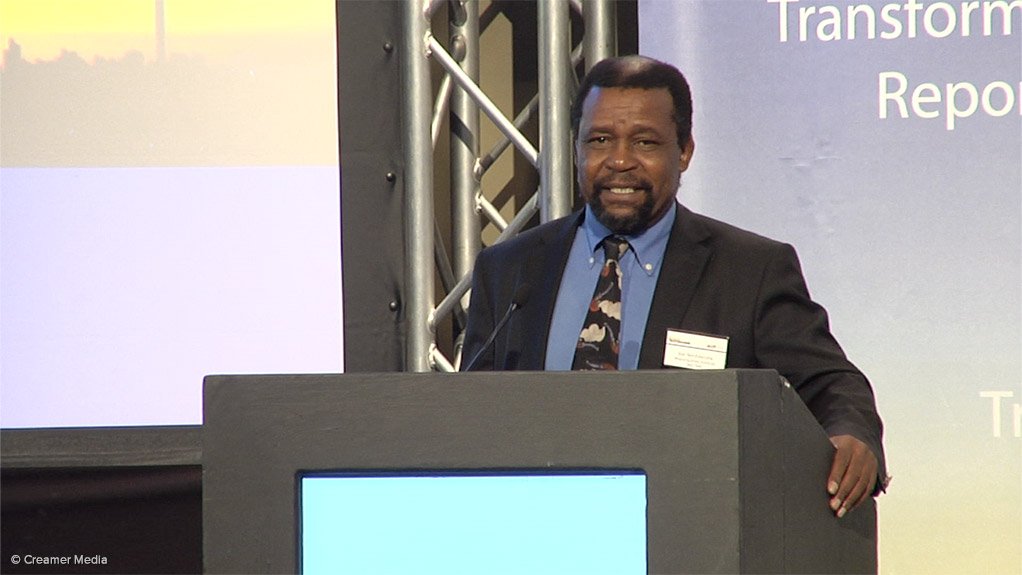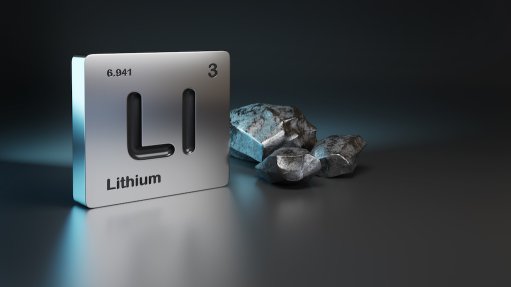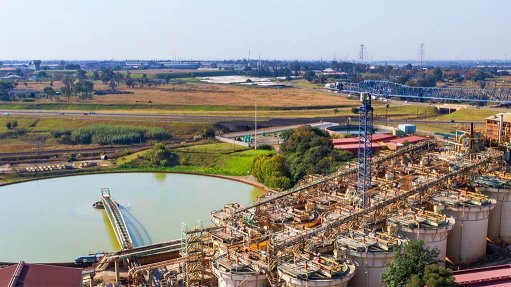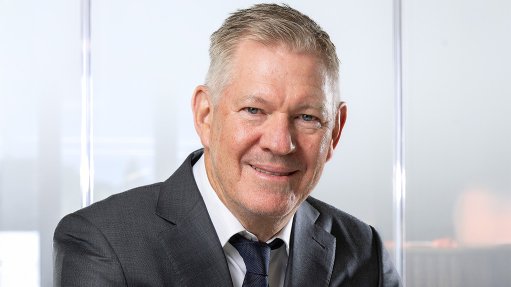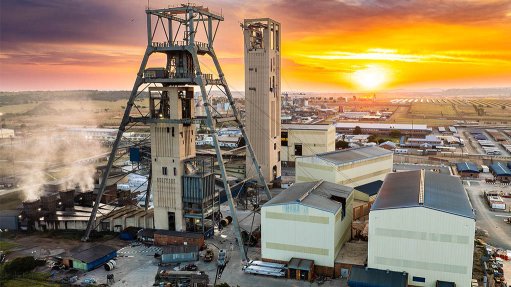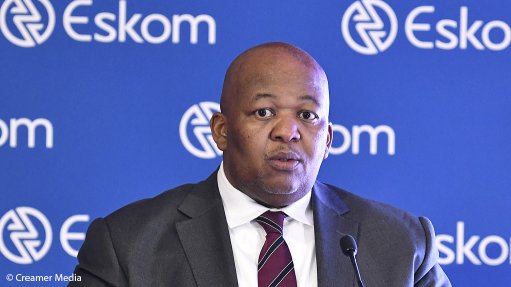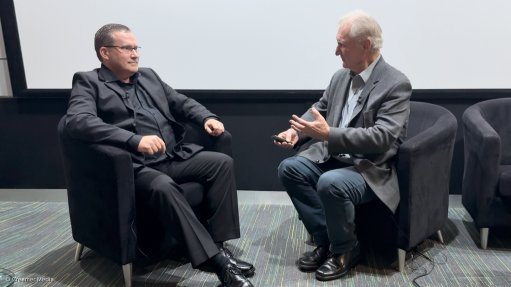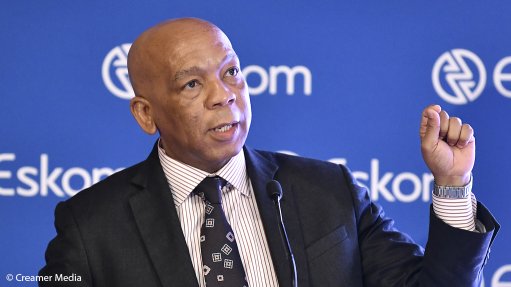South Africa making strides with green hydrogen ambitions, but several areas require focus
Government has been making progress in achieving the targets set out in the Hydrogen Society Roadmap for South Africa; however, there are still areas that require more focus, especially in terms of capitalising on the opportunities that the green hydrogen economy presents for the county’s endowment of platinum group metals (PGMs), as well as the role it can play in the country’s just energy transition.
This was noted by speakers during the Mapungubwe Institute for Strategic Reflection’s (Mistra's) eighth yearly PGMs roundtable, held on September 6.
Department of Science and Innovation hydrogen and energy director Dr Cosmas Chiteme said that, with the roadmap, the country was aiming to use its mineral endowment, renewable energy assets, land availability and local industry capabilities to create a globally competitive hydrogen economy as called for under the Economic Reconstruction and Recovery Plan.
He pointed out that, in line with the Just Energy Transition-Investment Plan, the country could potentially be rebranded as a destination for sustainable investment that incorporates environmental, social and good governance principles.
Chiteme highlighted that the approval by Cabinet to extend the Hydrogen South Africa RDI Programme was an indication the country remains committed to contributing to the growth of the global hydrogen economy.
He added that government had initiated engagements with the private sector and international partners to design appropriate operational models for the effective implementation of the roadmap.
Mistra executive director Joel Netshitenzhe highlighted two major milestones since last year’s roundtable as, firstly, the R105-billion energy investment commitment of Hive Hydrogen, the biggest investment pledge announced at the fifth South African Investment Conference in April.
Hive Hydrogen’s commitment entails the construction of a green hydrogen/green ammonia production facility at the Coega Special Economic Zone, in the Eastern Cape, as well as the construction of a seawater desalination plant capable of meeting about half of the water needs of the Nelson Mandela Bay metropolitan area, which is water-short.
Secondly, he mentioned that energy company Sasol in June produced the first green hydrogen from its Sasolburg electrolyser.
Netshitenzhe said these were two instances of practical progress since the steady emergence of the country’s hydrogen economy.
He pointed out, however, that despite the progress made, the country must bolster its efforts to be on par with other countries that are also undertaking similar endeavours.
He added that, with the total cost of ownership of fuel cell light vehicles being cheaper than battery electric vehicles and internal combustion engine vehicles by 2026, combined with the Inflation Reduction Act in the US and similar measures in Europe, there was an argument to be made that the challenge of producing green hydrogen economically was now over, and what was required was the necessary infrastructure and full-scale operationalisation.
Netshitenzhe emphasised that PGMs would be central to these efforts.
Anglo American sustainability head Stephen Bullock said that, to ensure the country continued to benefit from its considerable PGMs endowment, it must invest significantly into the development of new demand segments for this, including the hydrogen economy.
He pointed out that this would also require investment in renewable energy to support the green hydrogen industry, with the mining industry uniquely positioned to support this owing to its land access, project execution skills and solid balance sheets.
Netshitenzhe noted that issues still to be tackled included the risk aversion of financial institutions, owing to uncertainty around pricing and offtake demand, and how the county could ensure an enhanced partnership with development finance institutions.
He also mentioned the need for regulation and standards.
In this vein, African Critical Minerals CEO Dr Clarence Tshitereke called for the country to have a strategy in response to the global demand for critical minerals, noting that this was currently not harmonised.
He emphasised that such a strategy should enable the country to enhance international cooperation, fund exploration, and support the further growth of its mining industry.
Moreover, he said it should engender sustainable mining practices, including discerning the country’s approach to managing mine tailings and the growing artisanal mining sector.
Elaborating on this point, Mistra senior researcher Machete Rakabe pointed out that the country had not paid sufficient attention to the artisanal mining sector until recently, and it was also unclear on what to do with it – which included, therefore, its contribution to the hydrogen economy.
Rakabe emphasised that the policy response to artisanal mining must be evidence-based and informed by prevailing circumstances.
This would centre, firstly, on whether the country chose to allow or disallow it – with careful consideration of the implications of each potential decision.
He added that the decision to informalise or formalise the sector must entail the correct regulatory framework, industrial and market arrangements, organisation arrangements, and undocumented immigrant participation.
Comments
Press Office
Announcements
What's On
Subscribe to improve your user experience...
Option 1 (equivalent of R125 a month):
Receive a weekly copy of Creamer Media's Engineering News & Mining Weekly magazine
(print copy for those in South Africa and e-magazine for those outside of South Africa)
Receive daily email newsletters
Access to full search results
Access archive of magazine back copies
Access to Projects in Progress
Access to ONE Research Report of your choice in PDF format
Option 2 (equivalent of R375 a month):
All benefits from Option 1
PLUS
Access to Creamer Media's Research Channel Africa for ALL Research Reports, in PDF format, on various industrial and mining sectors
including Electricity; Water; Energy Transition; Hydrogen; Roads, Rail and Ports; Coal; Gold; Platinum; Battery Metals; etc.
Already a subscriber?
Forgotten your password?
Receive weekly copy of Creamer Media's Engineering News & Mining Weekly magazine (print copy for those in South Africa and e-magazine for those outside of South Africa)
➕
Recieve daily email newsletters
➕
Access to full search results
➕
Access archive of magazine back copies
➕
Access to Projects in Progress
➕
Access to ONE Research Report of your choice in PDF format
RESEARCH CHANNEL AFRICA
R4500 (equivalent of R375 a month)
SUBSCRIBEAll benefits from Option 1
➕
Access to Creamer Media's Research Channel Africa for ALL Research Reports on various industrial and mining sectors, in PDF format, including on:
Electricity
➕
Water
➕
Energy Transition
➕
Hydrogen
➕
Roads, Rail and Ports
➕
Coal
➕
Gold
➕
Platinum
➕
Battery Metals
➕
etc.
Receive all benefits from Option 1 or Option 2 delivered to numerous people at your company
➕
Multiple User names and Passwords for simultaneous log-ins
➕
Intranet integration access to all in your organisation



